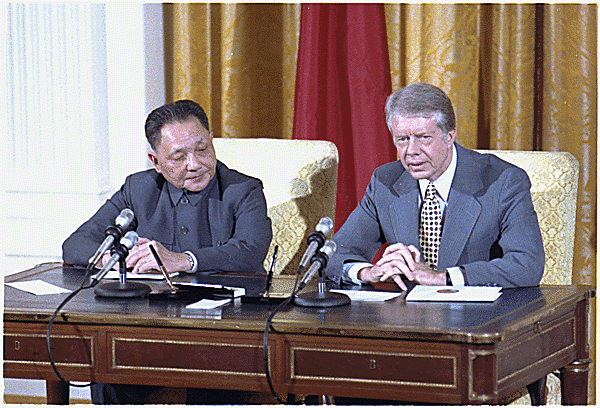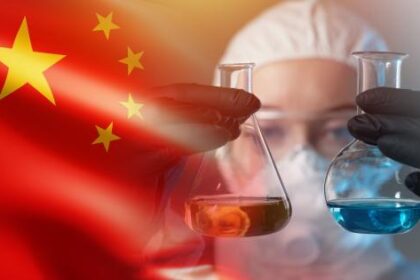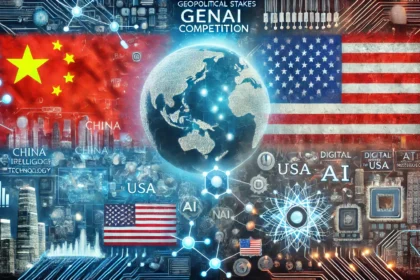During Vice Premier Deng Xiaoping’s visit to Washington, D.C., in January 1979, he and President Jimmy Carter engaged in discussions that led to significant agreements on student exchanges and scientific cooperation between the United States and China.
I always have believed that the most important bilateral relationship in the world is between the United States and China.
President Jimmy Carter
Student Exchanges
In their meeting, President Carter expressed a strong interest in maximizing opportunities for student exchanges, emphasizing that such interactions would greatly enhance future science and technology cooperation. Vice Premier Deng acknowledged the current limitations in China’s capacity to host a large number of American students but committed to creating the necessary conditions to accept more in the future. He assured that China would adopt an open attitude, allowing students regardless of their political or ideological beliefs, and expressed no concerns about the influence of differing social systems or ideologies.
Science and Technology Cooperation
On January 31, 1979, President Carter and Vice Premier Deng signed the U.S.–China Science and Technology Cooperation Agreement. This landmark agreement aimed to provide broad opportunities for collaboration in various scientific and technological fields of mutual interest, including agriculture, energy, space, health, environment, and engineering. The agreement outlined forms of cooperation such as the exchange of scientists, scholars, specialists, and students; joint research and development; and the organization of joint courses, conferences, and symposia.
These initiatives marked the beginning of a new era in U.S.-China relations, fostering educational and scientific exchanges that have continued to evolve over the decades.
The road ahead!
The legacy of President Jimmy Carter in fostering U.S.-China scientific cooperation remains a testament to the enduring power of diplomacy and mutual respect in advancing shared global interests. His visionary leadership, exemplified by the 1979 U.S.–China Science and Technology Cooperation Agreement, laid the foundation for decades of collaboration that have driven innovation, addressed global challenges, and strengthened ties between two of the world’s most influential nations.
As international dynamics continue to evolve, the hope persists that this spirit of cooperation will endure, transcending political and ideological differences. Carter’s efforts remind us that through dialogue and shared commitment, nations can achieve progress that benefits all of humanity. His legacy serves as an inspiration for future leaders to prioritize mutual understanding and collaboration, ensuring that the bridges he built remain strong for generations to come.








